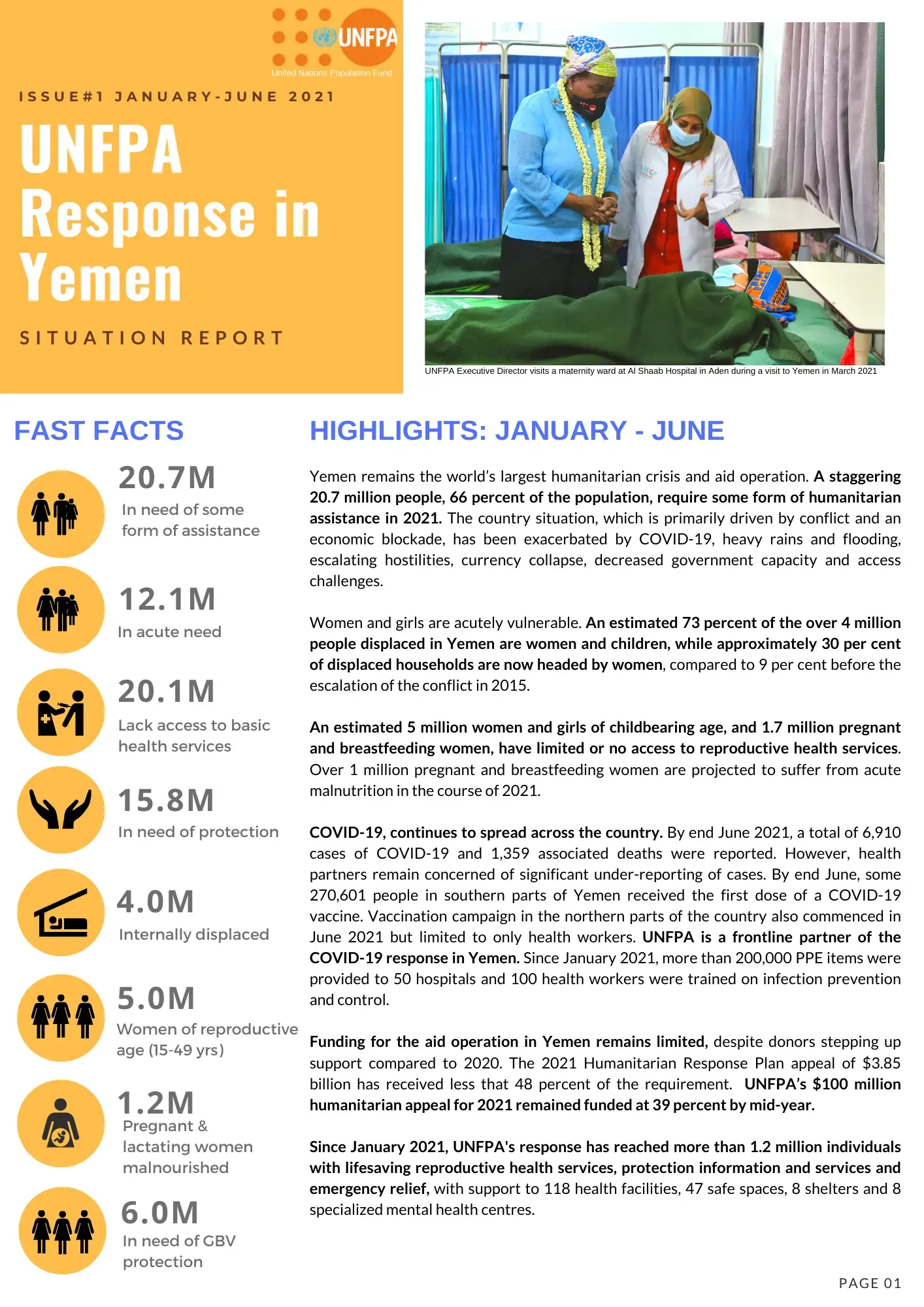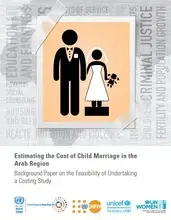Yemen remains the world’s largest humanitarian crisis and aid operation. A staggering 20.7 million people, 66 percent of the population, require some form of humanitarian assistance in 2021. The country situation, which is primarily driven by conflict and an economic blockade, has been exacerbated by COVID-19, heavy rains and flooding, escalating hostilities, currency collapse, decreased government capacity and access challenges.
Women and girls are acutely vulnerable. An estimated 73 percent of the over 4 million people displaced in Yemen are women and children, while approximately 30 per cent of displaced households are now headed by women, compared to 9 per cent before the escalation of the conflict in 2015.
An estimated 5 million women and girls of childbearing age, and 1.7 million pregnant and breastfeeding women, have limited or no access to reproductive health services. Over 1 million pregnant and breastfeeding women are projected to suffer from acute malnutrition in the course of 2021.
COVID-19, continues to spread across the country. By end June 2021, a total of 6,910 cases of COVID-19 and 1,359 associated deaths were reported. However, health partners remain concerned of significant under-reporting of cases. By end June, some 270,601 people in southern parts of Yemen received the first dose of a COVID-19 vaccine. Vaccination campaign in the northern parts of the country also commenced in June 2021 but limited to only health workers. UNFPA is a frontline partner of the COVID-19 response in Yemen. Since January 2021, more than 200,000 PPE items were provided to 50 hospitals and 100 health workers were trained on infection prevention and control.
Funding for the aid operation in Yemen remains limited, despite donors stepping up support compared to 2020. The 2021 Humanitarian Response Plan appeal of $3.85 billion has received less that 48 percent of the requirement. UNFPA’s $100 million humanitarian appeal for 2021 remained funded at 39 percent by mid-year.
Since January 2021, UNFPA's response has reached more than 1.2 million individuals with lifesaving reproductive health services, protection information and services and emergency relief, with support to 118 health facilities, 47 safe spaces, 8 shelters and 8 specialized mental health centres.





